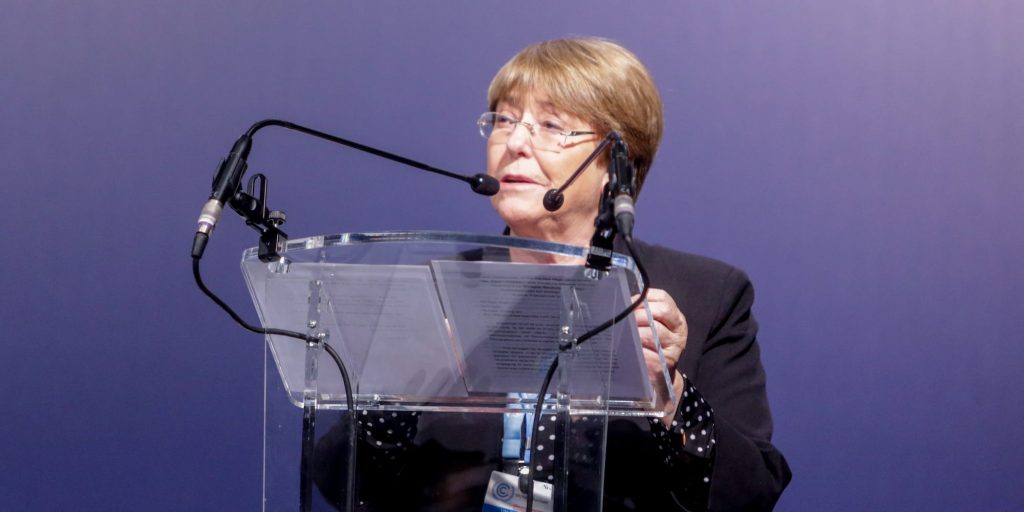- The UN high commissioner for human rights visited China for the first time in 17 years.
- Michelle Bachelet said she wasn't able to assess abuses against the Uyghurs on a trip to Xinjiang.
- Her trip was criticized by western leaders who said China could use it as an endorsement.
The United Nations High Commissioner for Human Rights, Michelle Bachelet ended her rare trip to China and said she wasn't able to assess abuses against the Uyghurs in XinJiang, Reuters reported.
Bachelet said the trip, which has been criticized by Western leaders, was a way for her to discuss China's counterterrorism policies and human rights with officials.
"It provides an opportunity for me to better understand the situation in China, but also for the authorities in China to better understand our concerns and to potentially rethink policies that we believe may impact negatively on human rights," she said in a video news conference before leaving the country, according to the Associated Press.
China has repeatedly been accused of committing "crimes against humanity" with its treatment of the Uyghurs. Beijing has denied accusations of mistreatment of the Uyghurs and other Turkic minorities in Xinjiang.
Bachelet's trip is the first by a UN high commissioner in 17 years, Reuters reported, and western leaders are worried that China will use the trip as an endorsement of its human rights record.
"The High Commissioner's visit has been characterized by photo opportunities with senior government officials and manipulation of her statements by Chinese state media, leaving an impression that she has walked straight into a highly predictable propaganda exercise for the Chinese government," Amnesty International's Secretary General Agnes Callamard said in a press release.
The UN commissioner's trip was arranged by China and what she was able to see and go were limited, Reuters reported. Bachelet said the trip wasn't an investigation into the policies in Xinjiang but a way to talk with Chinese authorities.
She said she spoke with Chinese officials over her concerns that the internment camps, which China has called "vocational education centers," lacked independent judicial oversight. She also addressed allegations of abuse, force and restrictions on religious practices, the AP reported.
"It is critical that counterterrorism responses do not result in human rights violations," she said. "The application of relevant laws and policies, and any mandatory measures imposed on individuals, need to be subject to independent judicial oversight, with greater transparency of judicial proceedings. All victims must be able to seek redress."

